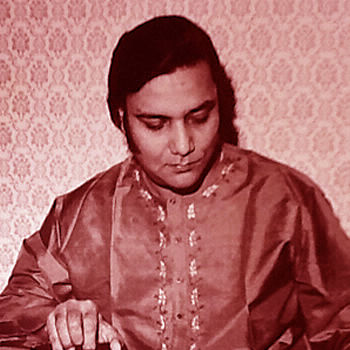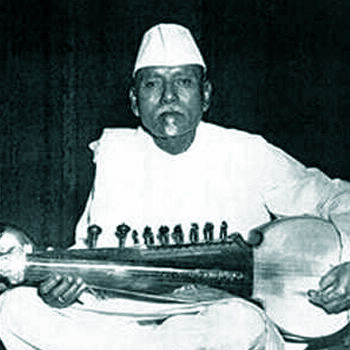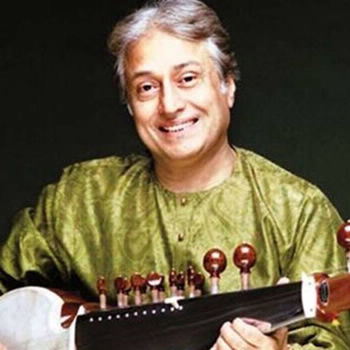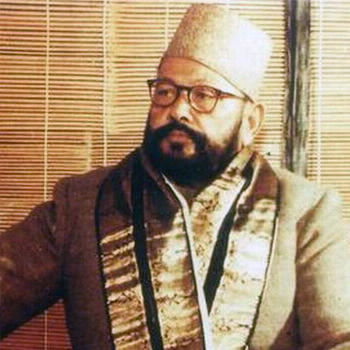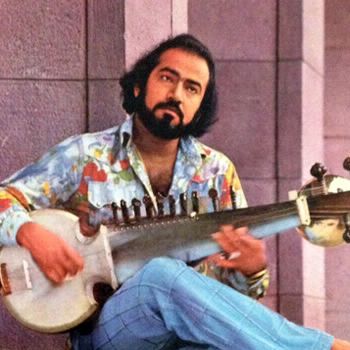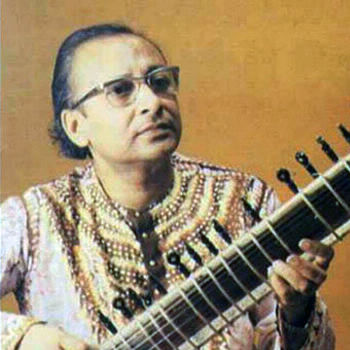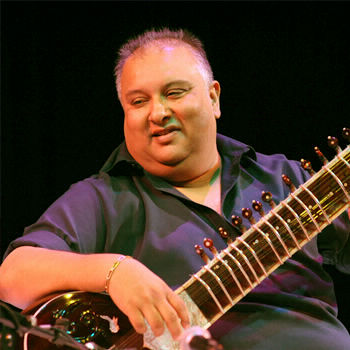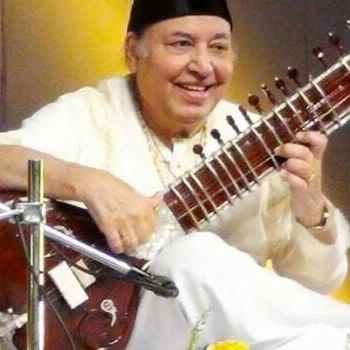
Ustad Imrat Hussain Khan
Born in 1935, Ustad Imrat Hussain Khan comes from a great lineage of traditional musicians, amongst whom Ustad Imdad Khan, his grandfather, and Ustad Inayat Khan, his father, were well known masters of the past, who brought fame to their family.
Imrat Khan was very young when he lost his father, but was fortunate to go through a thorough musical discipline under his illustrious elder brother, Ustad Vilayat Khan, who taught him the technique and philosophy of playing Sitar. From his paternal uncle, Ustad Waheed Khan, he learnt to play surbahar in the Dhrupad style, and learnt the Khayal style of vocal music from his maternal grandfather, Ustad Bandeh Hassan Khan. Learning from such great masters for many years has given the music of Imrat Khan a richness, depth, and variet which is hard to equal. Of course, the excellence of his Sitar playing is largely derived from the training he received from his brother, who specializes in the Gayaki style, but Imrat khan's magnificent style of Dhrupad alap, which he has developed on the Surbahar, has added futher charm and scope to his outstanding musical personality and his deciddly established his independent stature as a musician of a very high calibre.
A deep acknowledgement is due to Imrat Khan from all lovers of music for the determined way in which he has concentrated on playing the Surbahar, a noble but almost forgotten instrument. Imrat Khan has imparted a new life to this deep and sonorous instrument by developing and raising its technical and musical standards.
